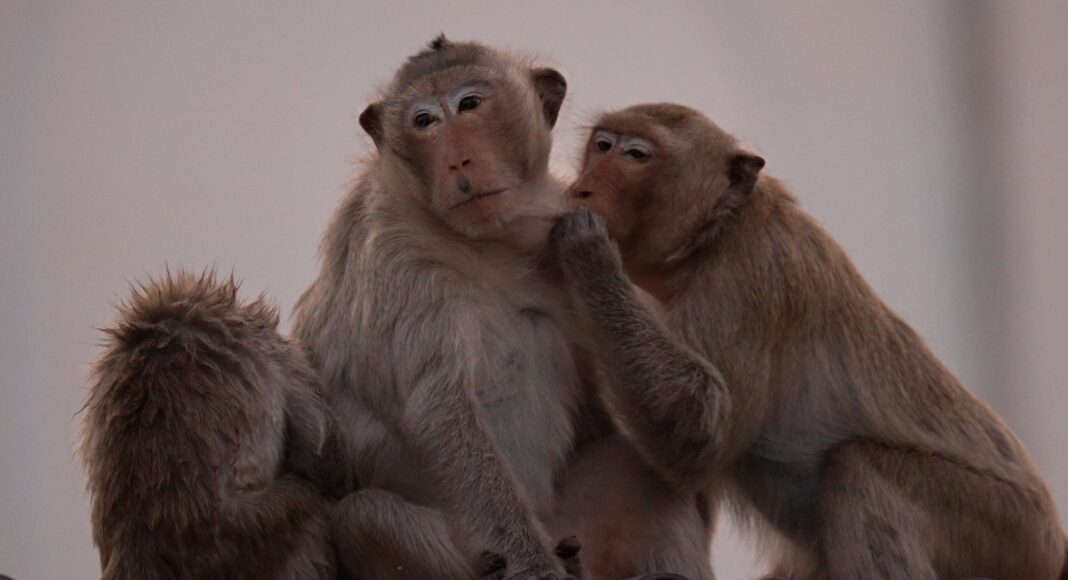They are everywhere – scaling wires, rattling shop fronts, jumping between buildings, nestling in temples.
The monkeys of Lopburi, Thailand, are smart, brazen, agile and hungry. When you drive into the ancient city, it looks like they might even be running the show. There are at least 2,500 here, but possibly many more.
For decades they’ve been a symbol of local culture. They draw in a lot of tourists – many who like to feed them – which some say is the problem.
But the authorities have now decided there are far too many monkeys roaming the streets. They say they’ve become a lot more aggressive, attacking shops and humans, with rival monkey gangs in conflict too. Their population ballooned during the COVID-19 pandemic.
Image:
Supaporn Tantiwong says customers are scared of the primates
Supaporn Tantiwong works in a store selling auto parts. She has to talk to customers through a metal grille to stop the primates from getting inside and stealing parts.
“Some customers are scared to come here because they’re worried about getting bitten by the monkeys,” she tells me.
“They’ve become hungrier and more aggressive and they have scared the tourists away too. If we don’t tackle them seriously, they’ll be many more in the future.”
Image:
Shopkeepers use metal grilles to keep the monkeys out
As she speaks, four macaques crawl over her, trying to hunt for goodies in her pockets. She says all the staff have had to get rabies and tetanus vaccines. And yet you can also see she’s fond of the monkeys.
But the local police are anxious. They’re so concerned about aggression in the alpha males, they’ve set up a special unit to tackle them.
Image:
Officers armed with slingshots
A group of officers turn up with wooden slingshots. They pound the streets aiming them at the monkeys to scare them off. But it’s just a deterrent. They claim they never use rocks.
A few streets away, a ranger from the Department of National Parks, Wildlife and Plant Conservation (DNP), is taking a more targeted approach.
We meet him loading up a tranquilliser gun. The idea is to sedate a few problem characters identified by locals, then take them to a temporary shelter, before relocating them to more suitable areas.
Image:
A man shoots a dart gun at a monkey
Image:
A monkey eating a tranquilliser dart
Today they’re trying to catch one monkey, known as “the gym teacher”, so-called because he steals students’ belongings. He is fittingly agile, evading capture, managing to pull the dart out and chew on it like a toy.
These monkeys are smart. They seem to know all of their captors’ tricks.
Image:
Ranger Kerkwit Poompayak
“We are trying to control them. Even if they’re trying to control us,” says Kerkwit Poompayak, with a knowing smile. He insists their approach is humane.
“We sterilise them to decrease their population and then we relocate them. There are many ways we treat them humanely.”
Read more:Night ferry catches fire off Thailand coastThailand set to legalise same-sex marriagePilot delivers baby mid-flight
Soon, the Royal Thai Army will swoop in – taking part in a mass capture.
It is a sign of how fraught the situation has become. The DNP says there are as many as 68,960 macaques nationally. In Lopburi, they say they’ve caught 37 aggressive ones since 25 March. But they’re hoping to round up as many as 2,300 and take them to a permanent shelter once it’s built. They’ve got a long way to go.




